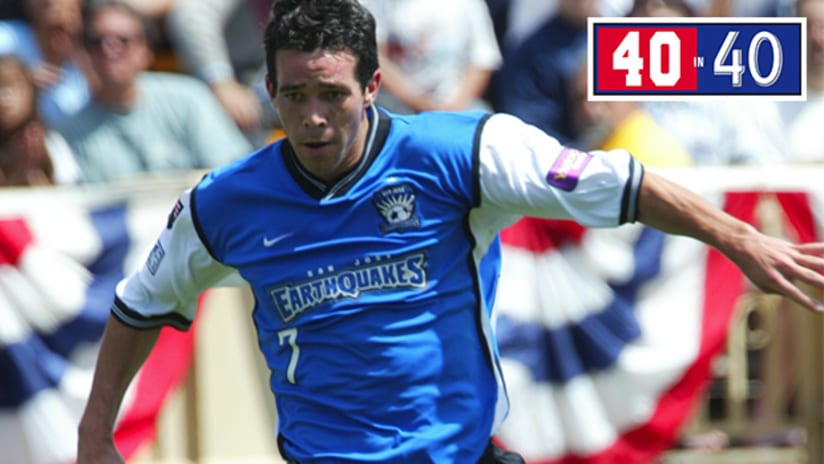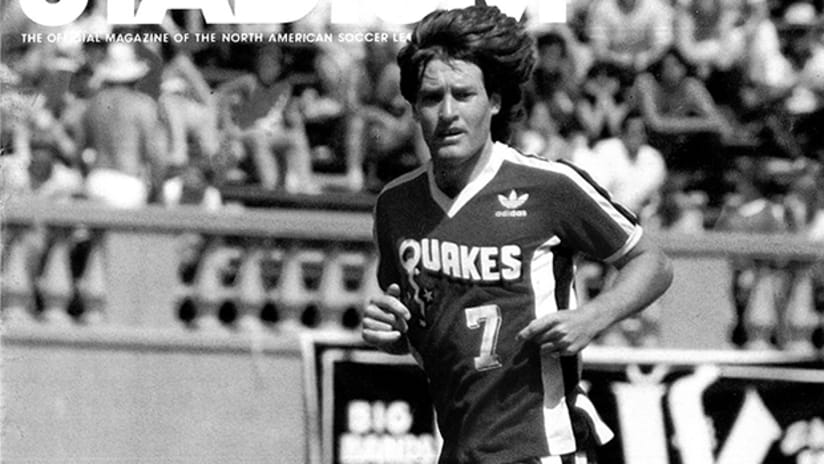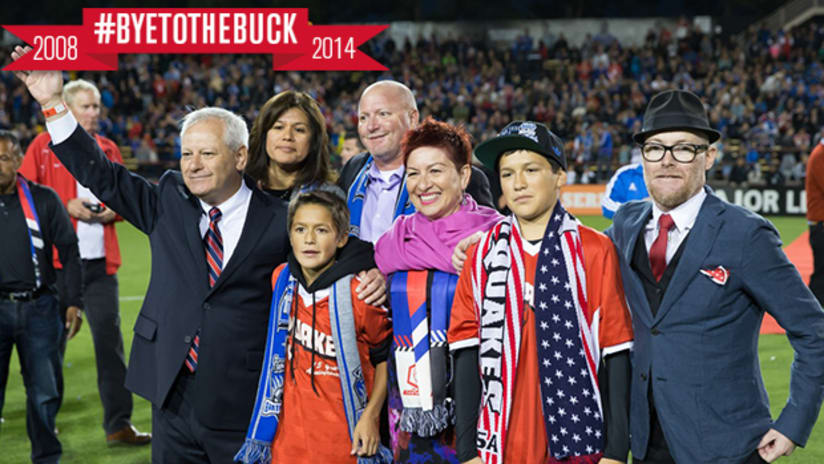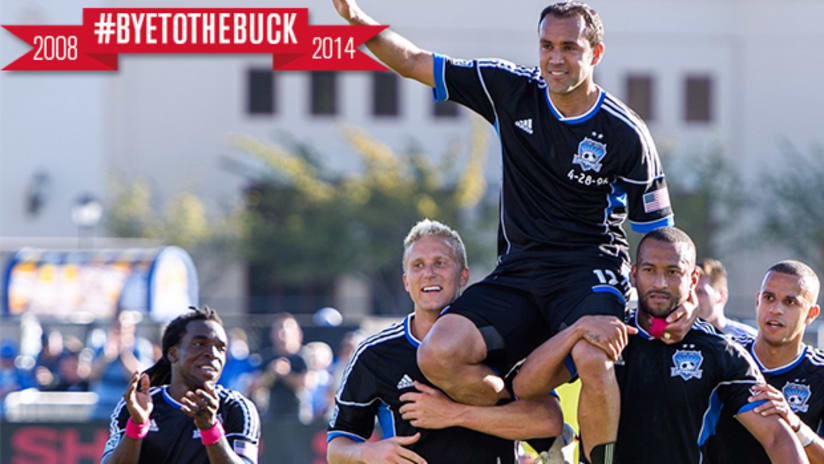As a tribute to our 40th anniversary, we're proud to unveil the San Jose Earthquakes' 40 in 40: 40 weeks of 40 stories from 40 years of Earthquakes soccer. From March until December, fans can follow along and learn about key moments of our history - and see how our past, present and future ultimately shape our new identity.
----------------------------------
The measure of the quality of a team is how it stacks up with its competition. For the San Jose Earthquakes, those competitors hail from the ranks of MLS, and the club counts two MLS Cups and two Supporters’ Shields among its defining accomplishments.
But around the world, domestic success is merely a stepping stone to something greater, a gateway for teams to compare themselves with the best clubs from other nations. In Europe, the famed UEFA Champions League tournament garners headlines in and out of the region, and in South America, the storied Copa Libertadores has crowned an annual champion for over 50 years.
For teams in MLS, the ultimate club championship is the CONCACAF Champions League. Established in 1962 as the Champions’ Cup, the annual competition brings together the best teams from North and Central American and the Caribbean for an event that for the winner books them into the FIFA Club World Cup.
Participation in the annual tournament is an honor that the current Quakes take seriously, and the team’s resiliency, exemplified by its “never-say-die” attitude in drawing Toluca in the quarterfinal opener, gives the team a “we believe” mentality going into the game down in Mexico that harkens back to another moment in club history.
“As you can see, this team is full of fight,” said assistant coach Ian Russell after Tuesday’s dramatic match. “We believe that we can go down there and beat them. We really believe that. And remember, there’s a rivalry between our league and the Mexican teams so it goes a lot deeper than the games sometimes.”
Russell should know. Ten years ago, the Earthquakes were closing the door on a three-year run in CONCACAF’s club championship that saw them reach the quarterfinals each year. And in 2002, the fleet-footed midfielder was a key part of a Quakes team that carried the momentum of an MLS Cup championship the year prior into an almost successful Champions’ Cup run, scoring a goal to help the team advance to the quarterfinals.
“I was fortunate to be a part of an unbelievable team back then,” said Russell, “and I thought we were as competitive as anyone in the region. We beat the Honduran team really handily, but we couldn’t get past Pachuca.’
The tournament that year was set-up as a 16-team bracket style competition, and San Jose advanced past the first round after earning two wins against CD Olimpia of Honduras. Unfortunately for the Earthquakes, their next opponent was Mexican powerhouse Pachuca CF, and the results did not quite go their way.
“We had some good games against Pachuca, and I remember those really well,” said Russell. “They were a great team down in Mexico for a number of years. We went down there and they handled us pretty well, and I remember them coming back to our place and we took it to them. We had great chances in the game but found it really difficult to score.”
In the away leg against Pachuca, the Quakes suffered a 3-0 defeat in front of the type of crowd that many American players never saw at home. The sights and sounds of that match left an indelible mark on Russell and gave him a glimpse into just how rabid soccer supporters were in other parts of the world.
“Going to Mexico and seeing the passion of the fans and knowing there is respect but obviously some dislike for each other, that was the best,” said Russell. “In those countries where soccer is the main sport, you get to see a different level of passion from the fans. That memory will always stick with me.”
The big deficit to Pachuca in the quarterfinal opener put a lot of pressure on the Quakes in the home leg at Spartan Stadium. A second half goal from club legend Ramiro Corrales gave hope to the Earthquakes faithful that a shocking upset was in the cards, but Pachuca held firm and completed the 3-1 aggregate goal win. The Mexican club ultimately went on to capture the tournament crown that year, the first of their four all-time CONCACAF titles.
“We have some of the best fans in the league, by far,” said Russell. “They are very passionate and it is great when they come out to support us even when it is not a league game. It’s a tournament that allows us and our fans to show what we are all about on an international stage. They came out and they were loud for us.”
Russell still looks back at disappointment at the setback against Pachuca but through the lens of history appreciates what an opportunity it presented to him as an American professional soccer player.
“It is always important because you want to see how your level of play compares to that of the countries around you,” explained Russell, “especially the teams from Mexico because they have the so-called best league in the region. It is very much about pride in your country and pride in your league.”
Next week, the Earthquakes face the daunting task of playing at altitude, nearly 9000 feet in elevation, in Toluca against the team that currently sits second in the Liga MX standings, with their tournament life on the line. It’s a challenge not unlike those faced by MLS teams every year in the CCL, but Russell thinks the tide may change.
“I think we are definitely closing the gap with Mexico,” said Russell. “It’s been so tough through the years, and we still have a hard time going down there and getting a win. But our league has some similarities now. We are now getting good players in their prime joining from other countries and American players are getting better too.”
“Our team will go definitely down there and battle, these guys believe it. We score a lot of goals because these players believe in and fight for each other. We are not out of it.”
Robert Jonas is a writer for CenterLineSoccer.com and SJEarthquakes.com. Send him feedback on Twitter: @RobertJonas




